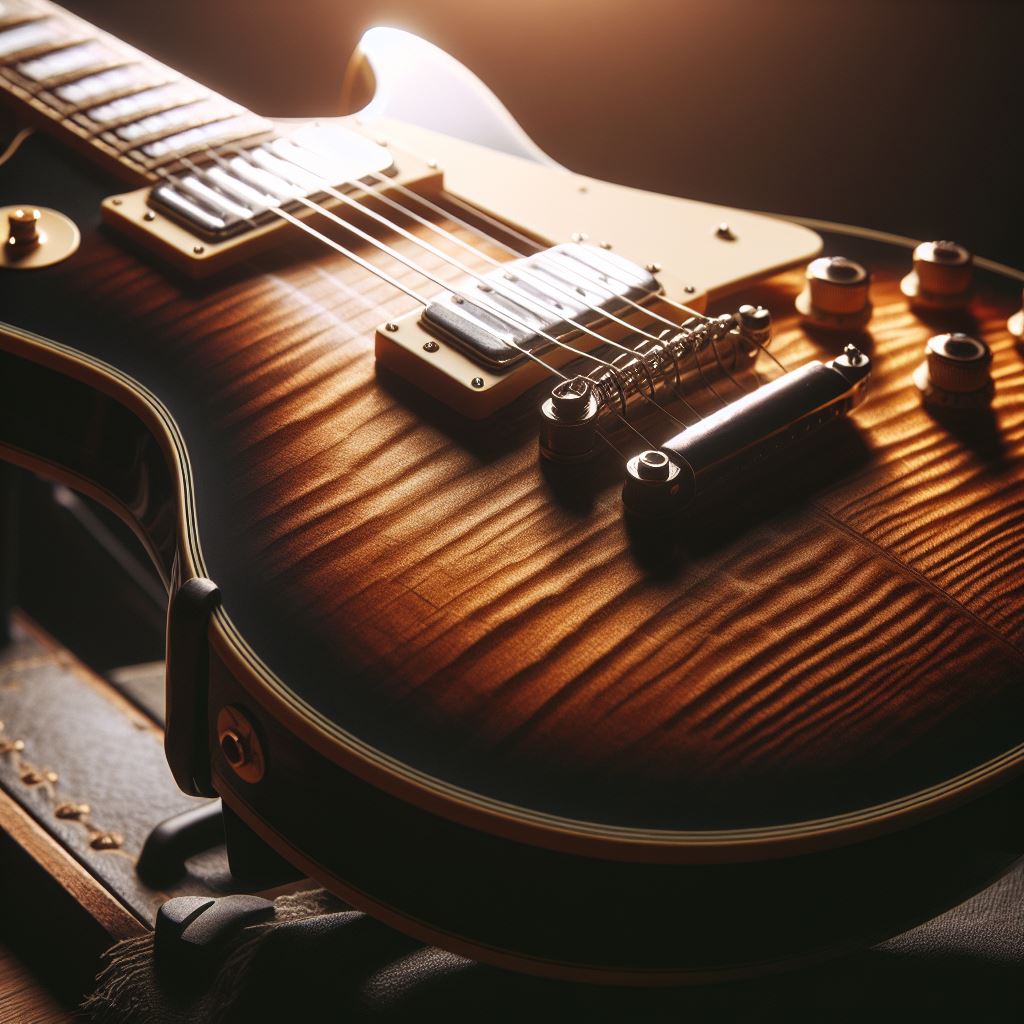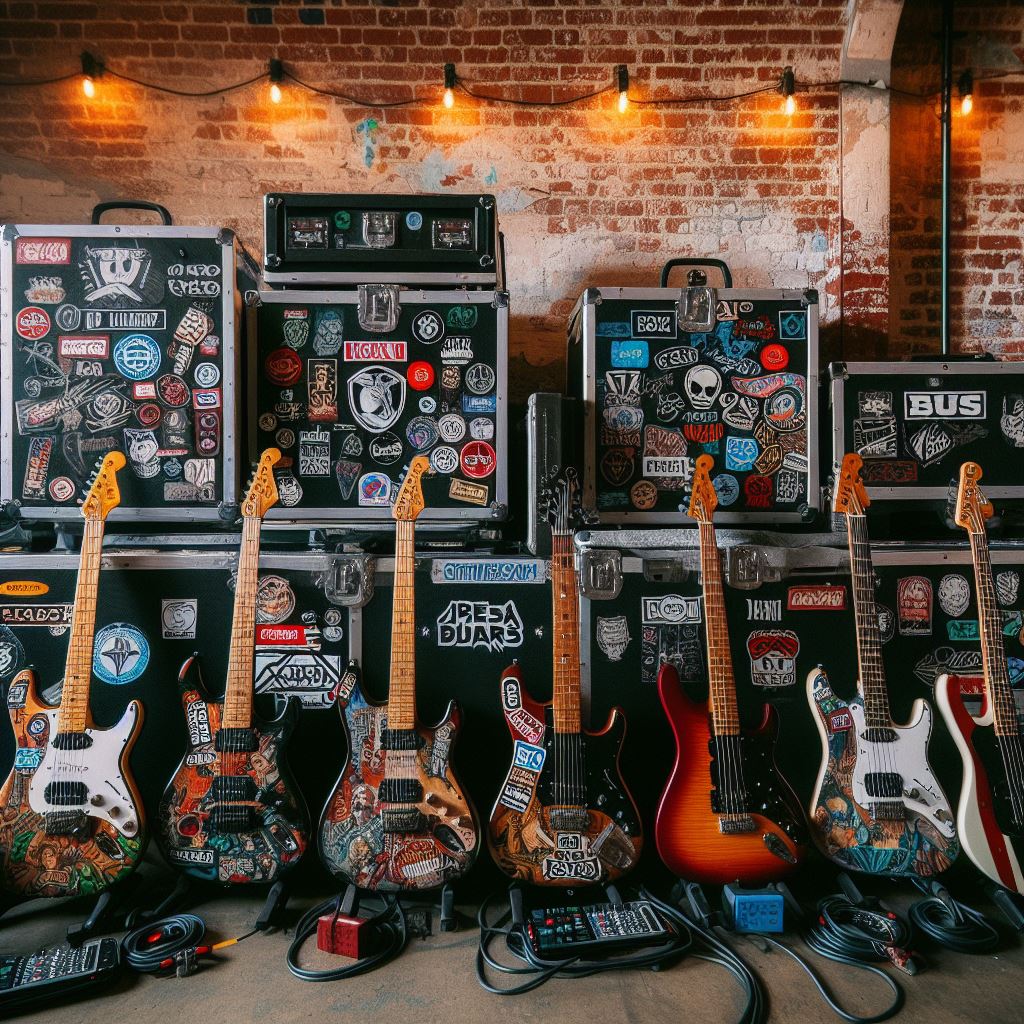When it comes to shaping your unique guitar sound, the choice of amplifier is crucial. The best electric guitar amplifier can make all the difference in achieving the tone and volume you desire, whether you’re playing in a bedroom, studio, or on stage. In this comprehensive guide, we’ll delve into what makes an amp stand out and help you find the perfect match for your needs.
Electric guitar amplifiers come in various types and sizes, each designed to cater to different playing styles and environments. From the rich warmth of tube amplifiers to the versatile capabilities of solid-state and digital models, there’s something out there for every guitarist. Understanding the distinctions between these types is the first step in your journey to finding the best amp for your sound.
Moreover, factors like wattage, speaker size, and additional features such as built-in effects and connectivity options play a significant role in determining the ideal amplifier. For beginners, the choices can be overwhelming. That’s why we at Jonathan Sturgill Guitar & Gear Reviews have put together this guide to simplify your search and help you make an informed decision.
Ready to dive in? Let’s explore the world of electric guitar amplifiers and discover how you can elevate your performance. Subscribe To My YouTube Channel for more in-depth reviews, tutorials, and tips!
Understanding Amplifier Types
To find the best electric guitar amplifier for your sound, it’s essential to understand the different types of amplifiers available. Broadly, amplifiers can be categorized into three main types: tube, solid-state, and digital. Each type has its own unique characteristics and tonal qualities, catering to various preferences and playing styles.
Tube Amplifiers: Known for their warm, rich tones, tube amplifiers (or valve amplifiers) use vacuum tubes to amplify the sound. They are often favored by professional musicians for their natural overdrive and dynamic response. However, they can be more expensive and require more maintenance compared to other types.
Solid-State Amplifiers: These amplifiers use transistors instead of vacuum tubes to amplify the sound. They are generally more affordable, reliable, and lighter than tube amps. While they may lack the warmth of tube amps, modern solid-state amplifiers have improved significantly and can produce excellent quality sound.
Digital Amplifiers: Also known as modeling amplifiers, digital amps use digital technology to emulate the sound of various classic tube amps and effects. They offer great versatility and are perfect for players who need a wide range of tones. Digital amplifiers often come with built-in effects, making them a popular choice for beginners and those who want an all-in-one solution.
Each amplifier type has its pros and cons, and the best choice depends on your specific needs and preferences. By understanding these differences, you’ll be better equipped to choose the amplifier that will best complement your playing style and help you achieve your desired sound.
Top Electric Guitar Amplifier Models

When it comes to finding the best electric guitar amplifier, there are several top models that consistently stand out in the market. These amplifiers are celebrated for their exceptional sound quality, reliability, and versatility. Here are some of the top electric guitar amplifier models that have garnered widespread acclaim:
- Fender Blues Junior IV: This tube amplifier is a favorite among blues and rock guitarists. It offers a warm, rich tone with a dynamic response, making it ideal for live performances and studio recordings.
- Marshall DSL40CR: Known for its iconic British sound, the Marshall DSL40CR is a versatile tube amp that caters to a wide range of genres. Its dual-channel design and built-in reverb provide excellent tonal flexibility.
- Vox AC15C1: The Vox AC15C1 is another highly regarded tube amplifier, celebrated for its chimey cleans and smooth overdrive. It’s a go-to choice for many indie and alternative rock musicians.
- Boss Katana-50 MkII: This digital amplifier is praised for its affordability and versatility. With multiple amp models and built-in effects, the Boss Katana-50 MkII is a great all-in-one option for beginners and advanced players alike.
- Line 6 Spider V 60: Another excellent digital amp, the Line 6 Spider V 60 offers a wide array of amp models and effects. Its user-friendly interface and wireless capabilities make it a popular choice for modern guitarists.
Each of these amplifiers brings something unique to the table, whether it’s the classic warmth of a tube amp or the modern versatility of a digital model. By exploring these top models, you’ll be one step closer to finding the perfect amplifier that matches your sound and playing style.
Key Features to Consider

When searching for the best electric guitar amplifier to suit your needs, it’s crucial to consider several key features that can significantly impact your playing experience and sound quality. Here are some of the most important aspects to keep in mind:
- Power Output: Measured in watts, the power output determines the amplifier’s volume and headroom. For home practice, a lower wattage amp (5-20 watts) is usually sufficient, while larger venues may require amplifiers with 30 watts or more.
- Type of Amplifier: Amplifiers come in different types, including tube, solid-state, and digital. Tube amps are known for their warm, rich tones, while solid-state amps are more durable and often more affordable. Digital amps offer versatility with built-in effects and modeling capabilities.
- Channels: Multi-channel amplifiers allow you to switch between different sounds (e.g., clean and overdrive) without adjusting settings. This feature is particularly useful for live performances and versatile playing styles.
- Built-in Effects: Many modern amplifiers come with built-in effects such as reverb, delay, and chorus. These can enhance your sound without needing additional pedals, making them a convenient option for players who want a wide range of tones.
- Connectivity Options: Consider the amplifier’s input and output options, including headphone jacks, line outs, and USB connectivity. These features can be essential for recording, practicing silently, or integrating with other gear.
- Size and Portability: Depending on your needs, the amplifier’s size and weight might be a critical factor. Smaller, lightweight amps are easier to transport and ideal for practice or small gigs, while larger amps are better suited for studio use or larger venues.
Understanding these key features will help you make an informed decision when choosing the best electric guitar amplifier for your specific requirements. By focusing on what matters most to you, whether it’s sound quality, versatility, or portability, you’ll be able to find an amp that enhances your playing experience and complements your unique style.
Matching Amplifiers with Your Music Style

Choosing the best electric guitar amplifier involves more than just considering technical specifications; it’s also about finding an amplifier that complements your music style. Different genres can benefit from specific amp characteristics, so let’s explore how to match amplifiers with various music styles:
- Rock: For rock music, an amp with a strong midrange and the ability to produce overdrive and distortion is essential. Tube amps, such as the Marshall JCM800, are popular for their warm, crunchy tones that define classic rock sounds. Look for models with high gain and multiple channels to easily switch between clean and distorted tones.
- Blues: Blues guitarists often prefer amps that deliver a smooth, warm tone with a bit of grit. Fender Blues Junior and similar tube amps are favored for their dynamic response and rich harmonics. The ability to achieve a clean sound with a touch of overdrive when pushed is crucial for this genre.
- Jazz: Jazz players typically seek amplifiers known for their clean, transparent sound. Solid-state amps like the Roland Jazz Chorus are ideal for their clear, articulate tones and built-in chorus effects. A good jazz amp should maintain clarity even at higher volumes, without unwanted distortion.
- Metal: For metal, an amp that can deliver high gain and tight, aggressive tones is necessary. Models like the Peavey 6505 or Mesa/Boogie Dual Rectifier are renowned for their powerful distortion and sustain. Look for amplifiers with built-in noise gates and multiple channels to handle both rhythm and lead parts.
- Country: Country musicians often favor amps that offer a bright, clean sound with plenty of headroom. Fender Twin Reverb is a classic choice, providing the sparkling clean tones and reverb that define the country genre. The ability to add slight overdrive for solos can also be beneficial.
- Alternative/Indie: This genre thrives on versatility, so an amp with a wide range of sounds and effects is ideal. Digital modeling amps like the Line 6 Spider series offer a variety of tones and built-in effects, allowing for creative expression and experimentation.
By considering how different amplifiers align with your music style, you can find the perfect match that enhances your performance and brings out the best in your playing. Whether you’re into rock, blues, jazz, metal, country, or alternative, the right amp can make all the difference in achieving your desired sound.
Expert Tips for Choosing Amplifiers

Choosing the best electric guitar amplifier can be daunting, especially with the myriad options available. To help you navigate this complex landscape, we’ve compiled some expert tips to guide you in making the right choice:
- Understand Your Needs: Consider what you primarily need the amp for—practice, recording, or live performances. A small practice amp like the Fender Mustang might be ideal for home use, while a high-wattage amp such as the Orange Rockerverb could be better suited for gigs.
- Consider Your Budget: Amplifiers can range from affordable to extremely pricey. Set a budget and stick to it. Remember, more expensive doesn’t always mean better for your specific needs. There are many high-quality budget-friendly options like the Boss Katana series.
- Try Before You Buy: Whenever possible, test the amp with your own guitar. This will give you a better sense of how the amp will sound with your setup. Pay attention to how it handles different volume levels and settings.
- Research Reviews: Look at reviews from other musicians to get a sense of the amp’s reliability and performance. Websites and YouTube channels like Jonathan Sturgill Guitar & Gear Reviews offer in-depth and unbiased reviews to help you make an informed decision.
- Check for Versatility: If you play multiple genres, consider an amp that offers a range of tones and effects. Digital modeling amps, like the Line 6 Helix, can emulate various amp types and effects, making them highly versatile.
- Think About Portability: If you frequently move your gear, weight and size are important factors. Compact models like the Roland Cube Street are great for musicians on the go.
- Evaluate Build Quality: A well-built amp will last longer and perform better. Check the materials used and read up on any common issues other users have experienced.
By following these expert tips, you can make a more informed decision and find the amplifier that best suits your needs. Remember, the right amp can significantly enhance your playing experience and help you achieve your desired sound.
For more in-depth reviews and tips, subscribe to my YouTube channel and stay updated with the latest gear insights!

